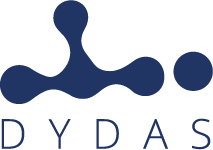Nell’ambito della Next Generation Internet Initiative, si opera per stabilire futuri alternativi di Internet al fine di creare un Internet resiliente, affidabile e sostenibile. L’originaria visione decentralizzata alla base di Internet e del Web ha risentito del consolidamento industriale su larga scala. Questi futuri alternativi hanno comun denominatore, ovvero si basano su tecnologie caratterizzate da dati aperti, standard aperti, software e hardware gratuiti e open source.
The Next Generation Internet (NGI) è un’iniziativa della Commissione europea che mira a modellare lo sviluppo e l’evoluzione di Internet in un Internet of Humans. Un Internet che risponda ai bisogni fondamentali delle persone, tra cui la fiducia, la sicurezza e l’inclusione, riflettendo al contempo i valori e le norme di cui godono tutti i cittadini in Europa.
L’investimento iniziale dell’Unione Europea per la ricerca e nell’innovazione NGI ammonta ad oltre 250 milioni di euro (2018-2020) e ha già sostenuto circa 1.000 ricercatori e innovatori di Internet coinvolti in molte centinaia di progetti.
Inoltre la Commissione Europea dedicherà 62 milioni di euro per sostenere i principali innovatori di Internet nei settori della fiducia e della sovranità dei dati su Internet; Ricerca e scoperta aperte affidabili; Architettura Internet e Tecnologie Decentralizzate; nonché una maggiore cooperazione e collaborazione UE-USA e UE-Canada.
Dal Blog NGI apprendiamo che un ingrediente chiave per l’internet ideale, ovvero in grado di consentire ai singoli utenti e alla comunità di gestire i propri servizi Internet piuttosto che relegare ad una singola entità aziendale ad una posizione dominante, è uno standard chiamato W3C ActivityPub, prodotto dal World Wide Web Consortium.
ActivityPub consente di avere la propria presenza sul cosiddetto Fediverse (un insieme di server federati utilizzati per la pubblicazione Web e l’hosting di file, ma che, sebbene ospitati in modo indipendente, possono comunicare tra loro) e di possedere effettivamente la propria presenza come utente: è possibile impostare sotto il proprio dominio Internet, determinare le proprie politiche e regole della comunità, stabilire le proprie impostazioni sulla privacy e utilizzare lo stesso account ovunque per interagire con gli altri.
Uno dei progetti Fediverse più noti è Mastodon. Mastodon ha fatto parlare di sé a livello globale: in breve tempo, Mastodon ha guadagnato oltre 500.000 nuovi utenti, raggiungendo oggi oltre 1 milione di utenti attivi. Anche il numero di server indipendenti per Mastodon è raddoppiato di recente. A differenza dei social media tradizionali, Mastodon non è un singolo sito Web o servizio. Per usarlo, è possibile scegliere un account con qualsiasi provider che implementa il protocollo ActivityPub (o eseguire per proprio conto tale software), il quale consente di connettersi con l’intero ecosistema alle proprie condizioni. Gli utenti possono pubblicare testo (limite di 500 caratteri), immagini, collegamenti e video e i loro “Toots” sono pubblicati rigorosamente in ordine cronologico (non esiste un algoritmo che classifica i “Toots”) e tutto è senza pubblicità.
Fonte e per maggiori informazioni: sito web NGI
What alternative futures of the Internet is NGI studying?
As part of the Next Generation Internet Initiative, work is done to establish alternative futures of the Internet in order to create a resilient, reliable and sustainable Internet. The original decentralized vision behind the Internet and the Web has suffered from large-scale industrial consolidation. These alternative futures have one thing in common: they are based on technologies characterized by open data, open standards, free and open source software and hardware.
The Next Generation Internet (NGI) is an initiative of the European Commission which aims to shape the development and evolution of the Internet into an Internet of Humans. An internet that responds to people’s basic needs, including trust, safety and inclusion, while reflecting the values and standards enjoyed by all citizens in Europe.
The European Union’s initial investment in NGI research and innovation amounts to over €250 million (2018-2020) and has already supported around 1,000 internet researchers and innovators involved in many hundreds of projects.
In addition, the European Commission will dedicate €62 million to support leading internet innovators in the areas of trust and data sovereignty on the internet; Trusted open search and discovery; Internet Architecture and Decentralized Technologies; as well as enhanced EU-US and EU-Canada cooperation and collaboration.
We learn from the Blog NGI that a key ingredient to the ideal internet, one that allows individual users and the community to manage their own internet services rather than relegating a single corporate entity to a dominant position, is a standard called W3C ActivityPub , produced by the World Wide Web Consortium..
ActivityPub allows us to have the presence on the so-called Fediverse (a set of federated servers used for web publishing and file hosting, but which, while independently hosted, can communicate with each other) and actually own your presence as User: You can set up your own internet domain, determine your own community policies and rules, establish your own privacy settings, and use the same account everywhere to interact with others.
One of the best known Fediverse projects is Mastodon. Mastodon made headlines globally: in a short time, Mastodon gained over 500,000 new users, reaching over 1 million active users today. The number of independent servers for Mastodon has also doubled recently. Unlike traditional social media, Mastodon is not a single website or service. To use it, you can choose an account with any provider that implements the ActivityPub protocol (or run such software yourself), which allows you to connect with the entire ecosystem on your own terms. Users can post text (500 character limit), images, links, and videos, and their “Toots” are posted strictly in chronological order (there is no algorithm that ranks “Toots”), and everything is ad-free.


